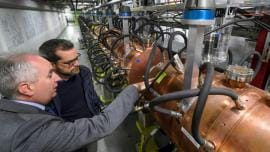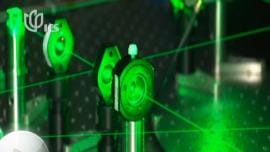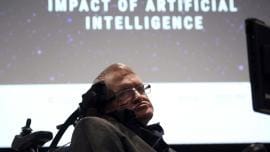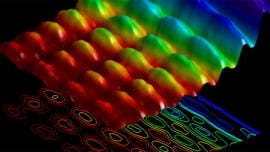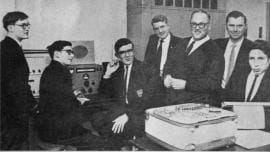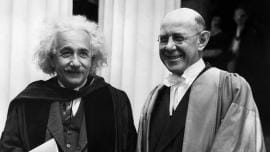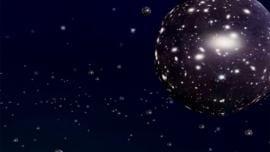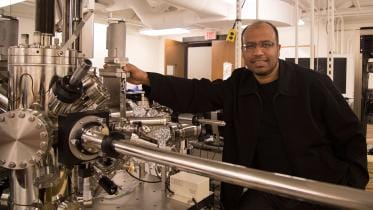Bangladeshi scientist leads discovery of novel quantum state of matter
18 September 2018, 06:59 AM
Bangladesh
Discovery of neutron star collision is 'breakthrough' of 2017
26 December 2017, 11:20 AM
Online
Top lab CERN launches key new particle accelerator
10 May 2017, 12:48 PM
Online
Chinese scientists create first photon quantum computer
4 May 2017, 07:01 AM
Bytes
Hawking opens British artificial intelligence hub
20 October 2016, 05:15 AM
Online
Newly created hologram of particle of light may change quantum world
21 July 2016, 06:00 AM
Online
Kettering Cosmos: How school children exposed Soviet secret
16 April 2016, 09:49 AM
Online
The next ‘Einstein’ according to Harvard is not an old, white man
27 January 2016, 07:33 AM
Physics
4 cosmic phenomena that travel faster than the speed of light
19 January 2016, 05:31 AM
Science
2 most dangerous numbers in universe threaten end of physics
15 January 2016, 07:41 AM
Top News
Discovery of neutron star collision is 'breakthrough' of 2017
The world's first-ever detection of two faraway neutron stars colliding, causing a massive blast that rippled through the fabric of space and time, is judged the scientific breakthrough of 2017.
26 December 2017, 11:20 AM
Newly created hologram of particle of light may change quantum world
A persistent group of scientists at the University of Warsaw have accomplished the impossible by creating a hologram of a solitary particle of light, reports Business Insider.
21 July 2016, 06:00 AM
Easy trick to trap mosquitoes
Thanks to an instructional video made available on YouTube now we all can fight mosquitoes. A mosquito trap made of everyday household item can be deployed to get rid of the insect’s menace.
24 February 2016, 10:04 AM
The next ‘Einstein’ according to Harvard is not an old, white man
For her lengthy list of achievements in science, a Cuban-American woman is speculated to be the next Albert Einstein, reports Vibe.
27 January 2016, 07:33 AM
Bangladeshi physicist leads discovery of massless particle with promise for next-gen electronics
A Bangladeshi physicist of Princeton University leads an international team to the discovery of an elusive massless particle theorised 85 years ago.
21 July 2015, 05:33 AM


